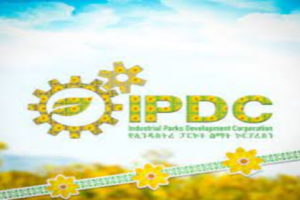
Ethiopia is one of the world’s largest coffee producers and exporters, and the coffee industry is a major contributor to the country’s economy. The Ethiopian government has made significant efforts to expand coffee exports in recent years through various initiatives.
One such initiative is the Ethiopian Commodity Exchange (ECX), which was established in 2008 to improve transparency and efficiency in the coffee trade. The ECX provides a platform for buyers and sellers to trade coffee, and it has helped to increase the volume of coffee exports from Ethiopia.
In addition to the ECX, the Ethiopian government has also implemented policies aimed at improving the quality of Ethiopian coffee and promoting it in international markets. For example, the government has established a coffee quality control system that ensures that only high-quality coffee is exported.
Furthermore, the government has worked to promote Ethiopian coffee through participation in international trade fairs and events, as well as through marketing campaigns. This has helped to increase awareness of Ethiopian coffee among international buyers and has led to increased demand for Ethiopian coffee.
Overall, Ethiopia’s efforts to expand coffee exports have been successful, and the country continues to be a major player in the global coffee industry.
Despite its success, Ethiopia’s coffee industry faces several challenges that could hinder its growth and sustainability. Here are some of the main challenges:
Ethiopia’s coffee production is vulnerable to climate change, which can affect the quality and quantity of coffee produced. Increasing temperatures, irregular rainfall patterns, and changing weather patterns can all impact coffee production in Ethiopia.
Many coffee farmers in Ethiopia still use traditional farming methods, which can limit yields and quality. The lack of investment in modern farming techniques and infrastructure can also hinder the industry’s growth.
Coffee pests and diseases, such as coffee berry disease and coffee leaf rust, can cause significant damage to crops. The lack of effective pest and disease management strategies can lead to crop losses and reduced yields.
Many coffee farmers in Ethiopia struggle to access finance, which can limit their ability to invest in their farms and improve their production.
The international coffee market is subject to price volatility, which can affect the income of coffee farmers in Ethiopia. Low coffee prices can result in reduced incomes for farmers and can limit their ability to invest in their farms.
Addressing these challenges will require significant investment in the coffee industry, as well as the development and implementation of effective policies and strategies to support coffee farmers and promote sustainable coffee production practices.
The Ethiopian government and various organizations are implementing several policies and strategies to address the challenges facing Ethiopia’s coffee industry. Here are some of the key initiatives:
The Ethiopian government has prioritized climate adaptation and resilience for the coffee industry. This includes initiatives such as promoting agroforestry, introducing drought-resistant coffee varieties, and investing in irrigation infrastructure.
The government is also working to encourage modernization and technology adoption in the coffee industry. This includes providing access to finance and training to farmers, promoting the use of modern farming techniques, and investing in research and development to improve coffee production.
The government is implementing pest and disease management strategies, such as promoting the use of disease-resistant coffee varieties and providing training on effective pest and disease control methods.
The government is working to improve access to finance for coffee farmers through initiatives such as the Agricultural Transformation Agency’s Rural Financial Intermediation Program and the Agricultural Commercialization Clusters initiative.
The government is implementing policies to stabilize coffee prices and improve market access for coffee farmers. This includes initiatives such as the Ethiopia Commodity Exchange, which facilitates transparent and efficient coffee trading, and promoting direct trade relationships between coffee buyers and farmers.
Overall, these policies and strategies are aimed at improving the productivity, quality, and sustainability of Ethiopia’s coffee industry, as well as increasing the income and livelihoods of coffee farmers.
According to reports from Ethiopian Coffee and Tea Authority Ethiopia has secured more than 1.3 billion USD during the concluded budget year by exporting 240,000 tons of coffee.
The nation’s plan was to secure 1.8 billion USD during the stated period.
Despite all the challenges the coffee market faced at the global level, the revenue gained is almost closer to the last year’s achievement which was 1.4 billion USD, according to Ethiopian Coffee and Tea Authority.
Promoting coffee in the global market, reform activities undertaken aimed at ensuring the benefits of framers and penetrating into new markets were some of the major players for the revenue obtained.
The efforts being taken to curb illegal coffee trade by developing software and strengthening coordination works with stakeholders were also among the measures undertaken during the just concluded Ethiopian fiscal year.
The country managed to export 300,000 tons of coffee last year and secured about 1.4 billion USD.
Coffee is critical to Ethiopia’s economy, generating 24 percent of the nation’s export income as USA, Japan, Saudi Arabia, Belgium, and Germany are major export destinations.
Recall that Ethiopia is the birth place of coffee Arabica and contains nearly fifth of all coffee farms around the world.
According to documents, there are several challenges and obstacles facing the implementation of these policies in Ethiopia’s coffee industry. Here are some of the major ones:
The Ethiopian government has limited resources, and implementing these policies requires significant investment. The government may not have sufficient funds to fully implement all of the policies and strategies needed to address the challenges facing the coffee industry.
The lack of infrastructure in rural areas can be a significant obstacle to implementing these policies. For example, many coffee farmers lack access to irrigation systems, roads, and electricity, which can limit their ability to adopt modern farming techniques and access markets.
Many coffee farmers in Ethiopia have limited access to technology, which can make it difficult for them to adopt modern farming techniques and improve their productivity.
There is a shortage of technical expertise in the coffee industry, particularly in areas such as pest and disease management and climate adaptation. This can limit the effectiveness of policies aimed at addressing these issues.
The implementation of these policies requires coordination among different government agencies, as well as between the government and private sector stakeholders. A lack of coordination can lead to duplication of effort and inefficient use of resources.
Addressing these challenges will require the government to prioritize investment in the coffee industry, as well as develop effective partnerships with private sector stakeholders and development organizations. It will also require a focus on building technical expertise and improving coordination among different stakeholders.
There are several modern farming techniques that coffee farmers in Ethiopia could adopt to improve their productivity and sustainability.
Applying Integrated Pest Management (IPM) this approach is a strategy that combines different pest control methods, such as biological control, cultural practices, and chemical control, to manage pests and diseases in a sustainable and effective way.
Soil conservation techniques, such as mulching, cover cropping, and terracing, can help to improve soil fertility, reduce erosion, and conserve water.
Diversifying crops and intercropping can help to improve soil health, reduce pest and disease pressure, and provide additional sources of income for farmers.
Irrigation can help to improve yields and reduce the impact of drought on coffee production. Techniques such as drip irrigation and sprinkler irrigation can be used to conserve water and improve water use efficiency.
Planting improved coffee varieties that are disease-resistant, high-yielding, and adapted to local conditions can help to improve productivity and quality.
The use of modern farm machinery, such as tractors and harvesters, can help to improve efficiency and reduce labor costs.
Organic farming practices, such as the use of compost and natural pest control methods, can help to improve soil health, reduce chemical use, and increase the value of coffee in international markets.
Adopting these modern farming techniques can help coffee farmers in Ethiopia to improve their productivity, sustainability, and resilience to climate change and other challenges that could hamper the export effort of Ethiopia.
BY MENGISTEAB TESHOME
THE ETHIOPIAN HERALD THURSDAY 13 JULY 2023



